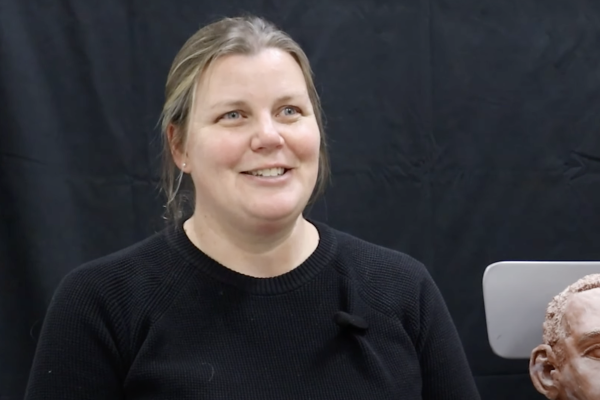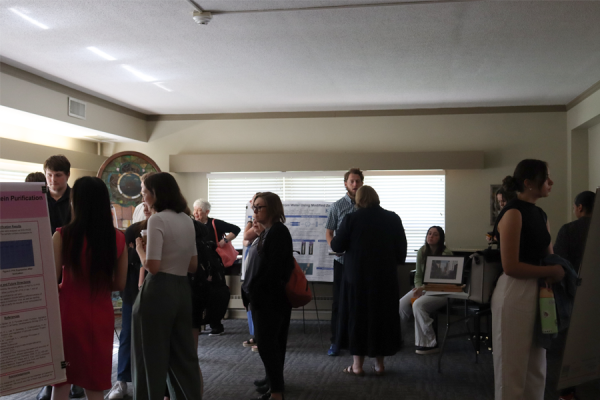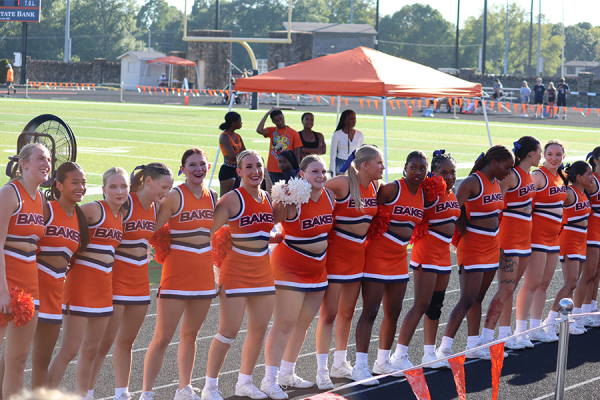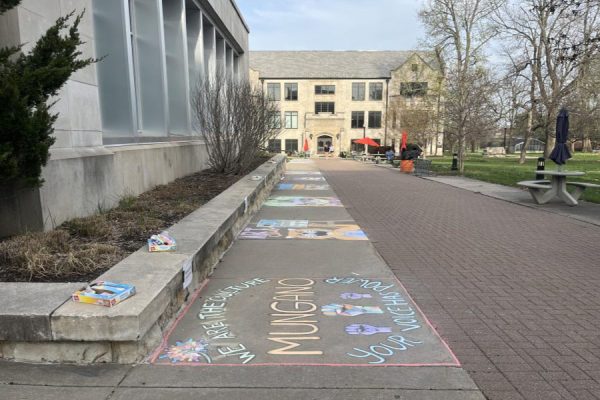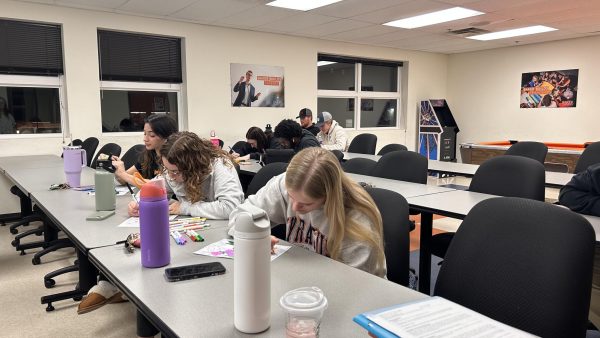Concurrent Credit Partnership prepares high school students for college
With Baker’s new concurrent credit opportunities, select high school students will now be able to earn college credits at a reduced rate.
High school districts all across Kansas are joining in with Baker University to give high school students a taste of college academics.
The Baker University Concurrent Credit Partnership (CCP) gives high school students the opportunity to participate in college-level course work while in high school.
The first Baker University CCP agreement was during the 2008 to 2009 academic year with the Blue Valley and Shawnee Mission school districts. Since then, DeSoto Public Schools and Olathe Public Schools have joined the partnership, and several additional school districts plan, such as Lawrence Public Schools, to participate next year.
High school teachers will conduct the courses during regular school hours.
Any student attending one of the partner school districts, virtual schools or students being homeschooled can earn college hours through the CCP program.
Students do not have to plan to attend Baker to take advantage of the program but can transfer the hours to other in-state or out-of-state colleges and universities.
However, any student who earns a C or higher in at least one CCP course with Baker and then enrolls at Baker will qualify for a $50,000 scholarship to be paid out over four years.
As Baker’s Concurrent Credit Coordinator, Lanie Fasulo has multiple responsibilities to further the program.
She serves as the liaison between the high school districts and Baker, communicating with high school and university administrators, teachers and families when issues arise.
Much of her time is spent ensuring that CCP enrollment is a smooth process, verifying students are enrolled in the appropriate courses, collecting grades at the end of each semester and ensuring that teachers and Baker Faculty partners are paid stipends each semester.
In addition, Fasulo recruits faculty partners to support the high school teachers and works to develop new initiatives to better serve high schools and Baker.
Tuition for concurrent credit courses is at a reduced rate. With a typical course equaling three credit hours, students are required to pay $110 per credit hour as a part of the program.
Regardless of the cost, there are multiple benefits for high school students who participate.
Students can use the opportunity to explore fields of study prior to attending college.
The Baker University Undergraduate School of Education (USOE) is currently partnered with eight high school CCP programs, which specialize in teacher education. CPP Faculty Partner for the USOE Dean Richards believes the program is a great opportunity for students to discover whether or not teaching is the right path for them before entering college.
“Teaching requires hard work and sincere dedication, and learning early-on about the demands and rewards of the profession can make the difference between finding a meaningful career or expending a lot of time, money and frustration,” Richards said.
Earning college credits can lighten the course load once the student is on the college campus or less time will be required to finish a college degree.
It can also provide more time in a student’s schedule to study abroad, pursue a double major or earn early admittance to graduate school. Because Baker is a four-year accredited university, credit may transfer to other in-state and out-of-state colleges and universities.
According to Fasulo, high school students who take use of CCP will have an overall advantage when they enter college.
“CCP supports a successful transition from high school to college,” Fasulo said.

Maya is the News Editor for the Baker Orange. She is a senior from Lawrence, Kan. and is a mass media major. On-campus, she is a member of the women’s...

Rebekah Nelson is a senior from Newton, Kans, majoring in mass media and minoring in studio art. She works as the multimedia editor for The Baker Orange...





